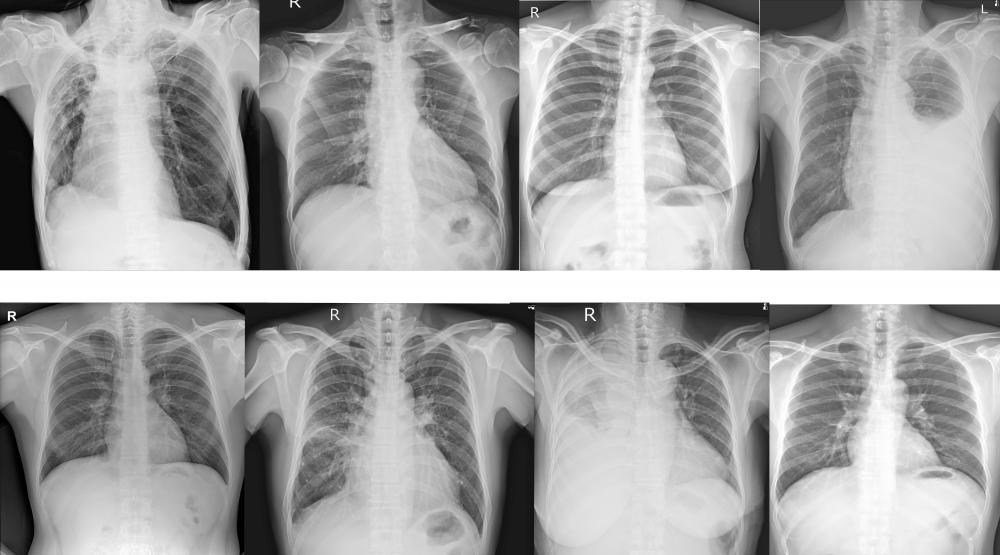
Understanding Infant Hernias
Finding an Infant Hernia Specialist Los Angeles who can provide specialized care is crucial for parents facing the diagnosis of a hernia in their child. Hernias in infants, particularly umbilical and inguinal hernias, require a precise and gentle approach. An umbilical hernia is evident when part of the intestine protrudes through the abdominal wall near the belly button. It is a common condition that may resolve on its own by the age of 4-5 years. However, some cases demand surgical intervention, especially if complications like incarceration occur, where the intestine becomes trapped.
Inguinal hernias, on the other hand, occur in the groin area and are more common in boys. Unlike some umbilical hernias, inguinal hernias seldom repair themselves and typically necessitate surgical repair to prevent complications. The ideal Infant Hernia Specialist Los Angeles is someone like Dr. Frykman, who not only brings a wealth of experience but also a parental understanding and empathy towards each case.
Choosing the Right Specialist
When your infant requires hernia surgery, selecting the right specialist is paramount. Dr. Philip K. Frykman’s practice, Pacific Coast Pediatric Surgery, stands out for its dedication to providing tailored care for pediatric surgical needs. With an emphasis on evidence-based treatment and the latest scientific research, Dr. Frykman’s approach is both precise and compassionate.
Personal Touch in Professional Care
Dr. Frykman’s philosophy of care is deeply personal. Having faced serious illness within his own family, he understands the emotional turmoil parents experience. This empathy inspires his commitment to treat every young patient with the utmost care and consideration, ensuring that they receive the highest quality surgical intervention.
Advanced Surgical Techniques
Our pediatric colorectal surgeon and his team are known for their advanced and gentle surgical techniques designed specifically for pediatric patients. The practice’s dedication to utilizing cutting-edge procedures minimizes potential complications and promotes quicker recoveries, making them a trusted choice for Infant Hernia Specialist Los Angeles.
What to Expect
The journey through diagnosis and treatment of an infant hernia can be stressful. However, teams like the one led by Dr. Frykman ensure that parents are well-informed and supported every step of the way. From the initial consultation to postoperative care, parents can expect clear communication, compassionate care, and expert surgical management.
Post-surgery, children usually recover quickly, but individual attention to each patient’s recovery plan is a hallmark of Pacific Coast Pediatric Surgery’s approach. Follow-up care is meticulously planned to ensure the best outcomes and monitor the child’s well-being.
- Detailed preoperative preparation to ease parents’ concerns
- Gentle, child-centric surgical techniques
- Comprehensive postoperative care and follow-up
Commitment to Excellence
Choosing an Infant Hernia Specialist Los Angeles like Dr. Frykman means placing your child in hands that not only possess unparalleled medical expertise but also embody a profound commitment to pediatric care. His work, especially in anorectal malformations and participation in surgical missions, underscores his dedication to advancing pediatric surgery.
The positive outcomes and heartfelt testimonials from families who have entrusted their children to Dr. Frykman highlight the trust and high regard they hold for him and his practice. This reflects Pacific Coast Pediatric Surgery’s unwavering commitment to excellence in patient care, making them a premier choice for infant hernia surgery in Los Angeles.

Understanding Pediatric Chest Wall Deformity
At Pacific Coast Pediatric Surgery, we frequently encounter pediatric chest wall deformity, a condition that signifies a group of disorders affecting the chest’s structure. Our firsthand experiences have taught us the importance of early identification and tailored approaches to management. Pediatric chest wall deformity comprises various conditions, with pectus excavatum (sunken chest) and pectus carinatum (pigeon chest) being the most prevalent. These deformities not only affect the physical appearance but can also impact cardiac and respiratory functions, highlighting the critical nature of our interventions.
Our journey with patients battling pediatric chest wall deformity often begins with an in-depth assessment to understand the deformity’s severity and its implications on the child’s health. Utilizing state-of-the-art diagnostic tools and evidence-based practices, we aim to offer a roadmap to improvement, focusing on non-invasive methods when possible but also employing advanced surgical techniques when necessary. The personal insight from Dr. Frykman, stemming from his extensive experience and passion for pediatric surgery, underscores our dedication to providing the highest care level, emphasizing individualized treatment plans to support our young patients’ overall well-being.
Types and Treatments of Pediatric Chest Wall Deformity
Common Deformities
- Pectus Excavatum: Marked by a sunken chest appearance.
- Pectus Carinatum: Characterized by a protruding chest.
- Jeune Syndrome: A rare dwarfism form leading to a small, bell-shaped chest.
- Poland Syndrome: Involves chest muscle deficiency and rib abnormalities.
In facing pediatric chest wall deformity, we utilize a spectrum of treatment modalities, leaning towards minimally invasive techniques whenever feasible. For instance, pectus excavatum can be corrected through the Nuss procedure, a minimally invasive surgery that places a bar to elevate the sternum, greatly enhancing both function and aesthetic. Pectus carinatum, on the other hand, often benefits from brace therapy, avoiding the need for surgery in many cases. Through our collaborative approach, incorporating insights from physiotherapists and respiratory therapists, we ensure a comprehensive treatment plan that addresses both the physical deformities and any associated functional impairments.
Our relentless pursuit to refine and advance treatment options for pediatric chest wall deformity drives us to engage in ongoing research and development. Dr. Frykman’s significant contributions to the field, including his innovative work on anorectal malformations and his dedication to teaching and performing pediatric surgery globally, mirror our commitment to not just treating but fundamentally improving the lives of children affected by these conditions.
Our Approach to Care
Understanding that each case of pediatric chest wall deformity is unique, we at Pacific Coast Pediatric Surgery, led by Dr. Frykman, advocate for a deeply personalized and empathetic approach to care. Drawing on our extensive knowledge and the latest scientific research, we strive to not only correct the physical aspects of the deformity but also to nurture the child’s self-esteem and overall quality of life.
Our philosophy extends beyond the operating room. We believe in empowering families with knowledge and support, guiding them through the treatment journey and beyond. From the first consultation to post-operative care, our team remains steadfast in providing compassionate, comprehensive care, ensuring that every child’s journey to improvement is as smooth and comfortable as possible.
Emphasizing a team-based approach, we collaborate closely with specialists across various disciplines, ensuring each child receives holistic care tailored to their specific needs. This multidisciplinary strategy has been instrumental in achieving favorable outcomes, reflecting our dedication to excellence in pediatric surgical care. Through this, we aim to restore not only function but hope, enabling our young patients to lead vibrant, fulfilling lives despite the challenges of pediatric chest wall deformity.
Understanding Infant Hernias
Finding an Infant Hernia Specialist Los Angeles can be daunting for any parent facing the diagnosis of a hernia in their child. At Pacific Coast Pediatric Surgery, we understand the complexities involved in treating pediatric hernias. Hernias in infants, such as inguinal, umbilical, and diaphragmatic hernias, require specialized care. Our focus is on offering gentle, yet advanced surgical solutions that cater specifically to the delicate needs of our youngest patients.
Dr. Philip K. Frykman and our team bring a wealth of experience to the table, combining an evidence-based approach with the most current scientific research. This ensures that each child receives personalized care designed to achieve the best possible outcomes. Our approach is deeply personal; knowing firsthand the anxiety that comes with a child’s medical issues, we treat your children as if they were our own.
The key to successful hernia treatment lies in early detection and the expertise of the surgical team. Our office at Pacific Coast Pediatric Surgery is equipped with state-of-the-art technology to assist in the diagnosis and treatment of pediatric hernias, ensuring your child receives the top-tier care they deserve.
Choosing the Right Specialist
When it comes to selecting an Infant Hernia Specialist Los Angeles, it’s crucial to consider the surgeon’s experience and approach to care. Dr. Frykman’s qualifications speak for themselves, with board certifications and a commitment to ongoing education in pediatric surgery. His compassionate approach stems from his experiences as a father and his professional dedication to his young patients.
Our practice is known not just for our surgical expertise but also for our comprehensive care model. This includes preoperative education, meticulous surgical care, and thorough postoperative follow-up. We believe in empowering parents with information and supporting them through every step of their child’s medical journey.
What to Expect
From your first consultation at Pacific Coast Pediatric Surgery, our team is committed to providing a welcoming and supportive environment. We understand the importance of making families feel assured and informed. Prior to any surgical procedure, we ensure parents fully understand their child’s condition, the proposed treatment plan, and the expected outcomes.
Our surgical techniques are refined to minimize discomfort and promote rapid healing, with most procedures being performed on an outpatient basis. This means that your child can return to the comfort of home the same day as their surgery. We use the latest in minimally invasive techniques whenever possible, aimed at reducing recovery time and scarring.
After surgery, our team provides comprehensive follow-up care. This includes detailed instructions for at-home care, pain management, and information on what to expect during the recovery process. Recognizing the signs of possible complications early is crucial, and our team is always available to address any concerns that may arise postoperatively.
Choosing the right Infant Hernia Specialist Los Angeles is a critical decision for your child’s health. At Pacific Coast Pediatric Surgery, we are dedicated to providing families with the highest standard of surgical care, combined with a compassionate touch that makes all the difference.

When should a baby’s hernia be fixed?
Understanding the right timing for hernia repair in infants is crucial. Generally, for umbilical hernias, we often advise waiting until the child is around 4-5 years old, as many of these hernias close naturally. However, if the hernia is causing pain, is larger than 1.5-2 centimeters, or shows any signs of incarceration, we consider earlier surgical intervention. Inguinal hernias, on the other hand, do not close on their own and typically require surgery to prevent complications. The decision is always made on a case-by-case basis, taking into account the child’s health and specific circumstances of the hernia. Sharing a story, I once treated a young patient whose inguinal hernia was initially overlooked. By the time they came to us, surgery was immediately necessary to prevent further complications. This underscores the importance of early consultation with a specialist.
When should a pediatric hernia be repaired?
The timing of pediatric hernia repair largely depends on the type of hernia and associated symptoms. Inguinal hernias in children should be repaired soon after diagnosis to prevent the risk of incarceration or strangulation of the intestines. For umbilical hernias, we take a more conservative approach unless the child is symptomatic, the hernia is large, or it persists beyond the age of 4-5 years. Every child’s situation is unique, and during consultations, we evaluate all factors, including the child’s health and the hernia’s characteristics, to determine the best timing for surgery. There was a case where we decided to repair an umbilical hernia in a 3-year-old due to its size and the discomfort it caused, which greatly improved the child’s quality of life post-surgery.
Which doctor is best for umbilical hernia?
For an umbilical hernia, a pediatric surgeon with specialized experience in treating hernias in infants and children is your best choice. In our practice at Pacific Coast Pediatric Surgery, we focus on a child-centered, minimally invasive approach. We bring not only surgical expertise but also a deep understanding of the anxieties families face. Dr. Frykman, for example, combines his extensive surgical skills with empathy and personal insight, making him an exceptional choice for addressing umbilical hernias in children. Choosing a surgeon who prioritizes evidence-based, children-specific treatment plans ensures the best outcomes for these young patients.
Is hernia surgery safe for babies?
Yes, hernia surgery is considered safe for babies and is commonly performed. The key to achieving high safety and success rates lies in choosing a specialized pediatric surgeon with experience in minimally invasive techniques. In our practice, we prioritize safety through advanced surgical methods and comprehensive pre and postoperative care, tailored to the unique needs of pediatric patients. Our commitment to utilizing the latest advancements and evidence-based practices minimizes the risk of complications and supports quicker recoveries. Remember, early consultation with a specialist can significantly contribute to the overall safety and effectiveness of the procedure.
Understanding Pediatric Chest Wall Deformity
Pediatric chest wall deformities, such as pectus excavatum and pectus carinatum, not only impact a child’s physical appearance but can also affect their respiratory and cardiac functions. At Pacific Coast Pediatric Surgery, we emphasize early identification and a personalized treatment plan, which may include both non-invasive approaches and surgical interventions if necessary. Our use of state-of-the-art diagnostic tools and our commitment to a collaborative, multidisciplinary treatment approach ensures that we address both the physical and psychological needs of our patients. Dr. Frykman’s vast experience in this area enriches our practice, providing our patients with access to leading-edge care and innovative solutions that can dramatically improve their quality of life.
Resources
- Children’s Hospital of Orange County (CHOC) – CHOC provides valuable information on pediatric hernias and surgical interventions, offering insight into the latest treatment options.
- Johns Hopkins Medicine – Johns Hopkins offers in-depth resources on pediatric chest wall deformities, including information on common deformities and treatment modalities.
- Baylor College of Medicine – Baylor College of Medicine provides expertise on pediatric colorectal surgery, offering insights into specialized services and treatment options for various colorectal conditions in children.

